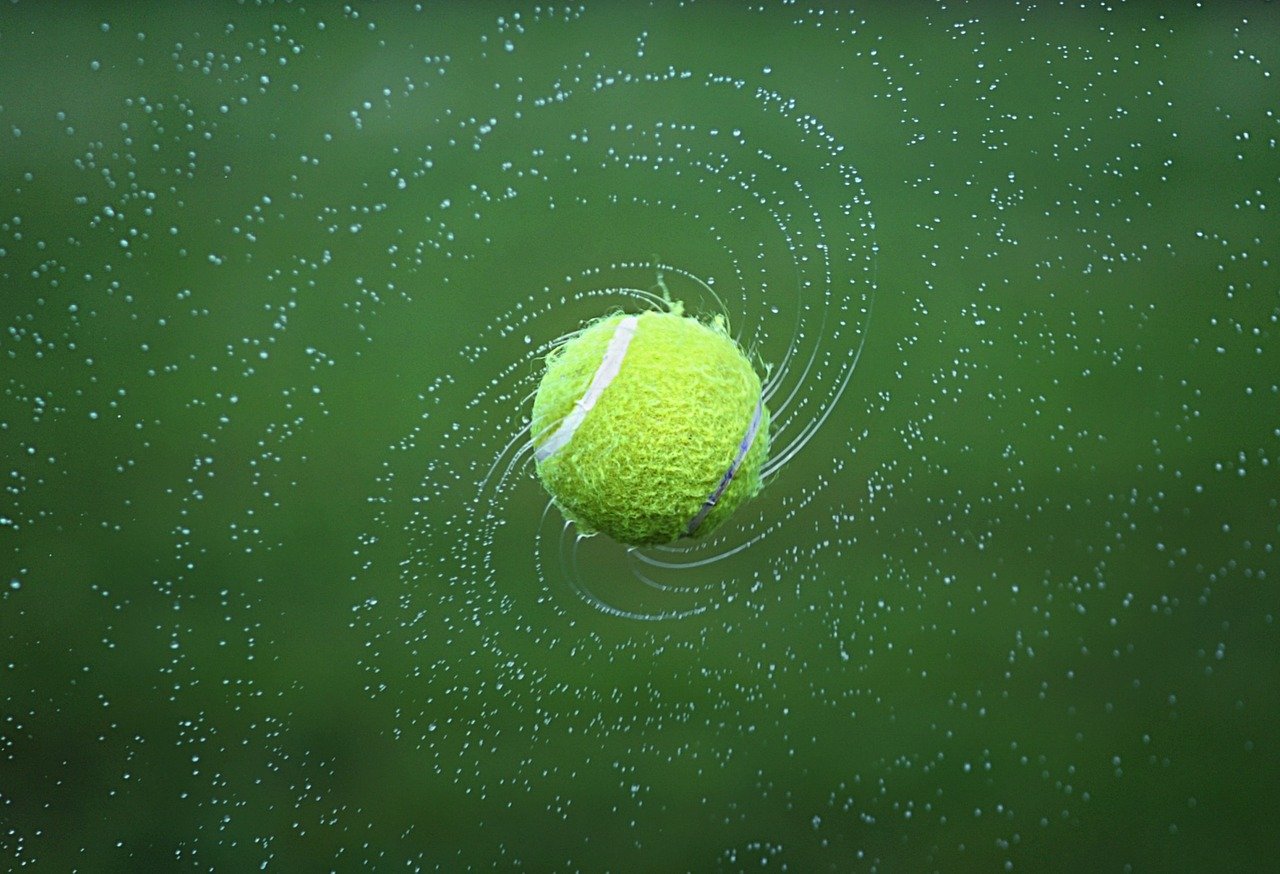Serena Williams announced her impending retirement last week. When the news hit my feed, I was excited. A new stage of development for one of my favorite athletes! I could hardly wait to see what would unfold for this IRL superhero.
My next thought was self-referential, “Fabulous timing for my newsletter!” (Last week, I focused on the merits and different types of rest.”) Then, I read her Vogue essay detailing the decision. My heart took a nose-dive into my stomach as if I’d accidentally stumbled onto a rollercoaster and started with a 400-foot drop. Serena’s retirement isn’t about rest, rejuvenation, or reinvention. It’s about the hard choices we make in life when we realize we can’t have it all.
Change requires choices. And often, those choices are painful. To walk through any new door, you have to leave the previous room. Often, we’re choosing when no option meets all our needs and the task is to decide where we can compromise and what we can live without.
Serena, a woman with resources so deep that most minions can’t relate, was making a choice between two wonderful, fulfilling paths for her future. That’s an enviable position to be in. But, since she sees those paths as mutually exclusive, it means that either option comes replete with substantive loss. It’s painful.
In her essay, Serena describes her decision…and her regrets. Cutting to the chase: she’s 41, she wants to grow her family, making babies is women’s work, and this combo of factors doesn’t leave room for a championship tennis career.
Her pain is palpable in this essay and her honesty heart-wrenching. She details the very real life choices women face – decisions that men are spared by the nature of their position in society and gender. Some of these issues are further exacerbated for women in careers that are heavily dependent on the physical appearance and functioning of the body. There’s no escaping the toll childbearing takes on the body and the fact that this is a function that only a woman can provide.
This is the conundrum facing female athletes – how to be the vessel for the family without sacrificing one’s dreams. And a comeback after childbirth isn’t as simple as it may sound.
Serena glowed her way through her first pregnancy, with her five-year-old, Olympia. She even won the Australian Open in 2017 when she was two months pregnant! But the birth and aftermath were difficult. There was a C-section, followed by two pulmonary embolisms, and postpartum depression. Throughout all of that, she continued to compete.
But at this point, “something’s got to give…I definitely don’t want to be pregnant again as an athlete. I need to be two feet into tennis or two feet out.” This is her bottom line. She’s not making this choice because she wants to but, rather, because popping out babies takes a toll and it’s something she can’t – and doesn’t want to – delegate. Through no fault of their own, this is a decision no man will ever have to make. It may be reality, but it feels unfair.
New Directions
Describing this time in her life as an evolution rather than a retirement (a term she finds dated), Serena intends to focus on her venture capital firm, Serena Ventures. The firm has already funded 16 unicorns (companies valued at more than $1 billion), including MasterClass, Impossible Foods, and Noom. Here, she’s making an impact by primarily funding women and people of color.
This new chapter sounds fabulous to me and she’s already making an impact as a businesswoman, just as she has as an athlete. But Serena is not feeling the joy. In fact, she’s deep in the well of grief and sorrow.
When it’s time to go, you’ve got to go, but that knowledge doesn’t make it easy. Recently, my therapist questioned my associations with a butterfly’s chrysalis. To me, the image brought up positive connotations of resting in a safe container. His response? “Yes, but if you stay too long it kills you.” (He sometimes enjoys shaking me up like a snowglobe.)
Serena’s been conferring with her therapist lately as well. Only her therapist, in fact, because she sees her evolution as a “taboo topic.” Speaking of it would make it suddenly real. Uh-oh. At the time of publication, she hadn’t discussed her decision with either her husband or her father. My reaction: “Oh, honey, I’m worried about you. You and the hubby need to get down and talk. Like, seriously. Right now.”
This is where my heart broke: “I’m going to be honest. There is no happiness in this topic for me…It’s the hardest thing that I could ever imagine. I hate it. ” She is simply not ready to leave the chrysalis. Change is hard. You always leave something behind.
The sucky bottom line about this: Women, as the known universe’s reproductive engine, are responsible for the continuation of the species. Right now, there’s nothing to be done about that. But it ensures that athletes like Serena Williams have to make choices that no man will ever face.
Real Issues for Regular Women
My heart is truly breaking for Serena, as it does whenever my clients or loved ones are forced to leave behind someone or something they love. But there are deeper issues here. This is biology, and just as we all have to face our own mortality at some point, there are simply limitations to what each body can do at any given time.
But think about this: If Serena Williams, a superstar with virtually limitless resources, is unable to navigate career and family demands, what hope is there for us mere mortals (much less those women who are economically disadvantaged)? The cultural and systemic challenges faced by women in the US when confronting these challenges can often feel like running a gauntlet.
Psychology is my second career (or third, really, but who’s counting). When I opted for a 5-7 year doctoral psychology program, I opted out of motherhood. Someone else, with plenty of resources and support, might have been able to manage both simultaneously. But I was paying my way through school with little backup funds and no family assistance. I love my career but do I have regrets? You betcha. I knew I couldn’t have it all and I made a choice. That doesn’t mean that I can rewrite my life to pretend it was perfect.
Ideally, I wouldn’t have had to make this choice. There would have been social supports that allowed me to pursue a career and a family. Instead, we have, at best, a kludge that works for men. The workaround for my male colleagues is to postpone marriage until completing their education and then choose a woman young enough to conceive.
Rather than write a treatise on gender inequality, I just want to name a few relevant facts:
Women, as caregivers, are the unpaid financial engine of our country. The unpaid work homemakers provide hampers their own careers and economic viability, but bolsters the careers and financial well-being of their partners – primarily, men. As of 2018, on an average day, women in the United States spend 37 percent more time on unpaid household and care work than men. Recent studies have demonstrated that this has only worsened with the pandemic.
Because there’s a gender gap in pay, if one spouse has to stay home, it’s much more likely to be the woman in a heterosexual couple. And because there continues to be a huge gender gap in sharing household responsibilities, a higher degree of childcare and household maintenance falls to the women.
The pandemic made things considerably worse. Childcare became both unreliable and unaffordable in the US, so hundreds of thousands of women left the workforce and are only trickling back.
And it isn’t getting any better in the US. The recent Inflation Reduction Act of 2022 puts billions behind climate and healthcare spending (yay!), but paid leave and affordable childcare were negotiated out of the final agreement (what a shock!).
Meanwhile, Canada’s child care statutes blow my mind. When the pandemic revealed the instability of childcare for most Canadian households, the government took action. Childcare costs have been halved in 2022 and, within five years, will be reduced to $10/day. No, you did not read that wrong, but go ahead and do a double-take anyway.
It’s not impossible to change. In the US, our politicians have simply refused to do so. No one can change the biological imperatives in this equation. But the choice not to change the social support system that holds women back from both financial freedom and the right to pursue their dreams is specific, strategic, and intentional. Changing the system doesn’t serve the white men in power.
Upshot (excuse the pun)
Once again, Serena Williams has made an impact by being her unadulterated, authentic self. Her experience makes it clear that wealth and success cannot exempt anyone from the challenges of choice and change. She models vulnerability as well as the commitment to face change, honor the inherent regret in choosing, and keep on going, head held high.
In the timing of her retirement, Serena is making a heartbreaking (and fan-disappointing) choice – to forfeit the dream of nailing the grand slam record (Serena’s won 23 and the record stands at 24). She’s embarking on other dreams. Her family – and, particularly, her sisters – are her treasure. Building a similar nest for her daughter will certainly be more valuable and fulfilling than chasing a record that will later be surpassed by some other athlete. Throughout her career, providing hope, sustenance, and material support to women and people of color has been a guiding principle. She is already taking that to the next level through her capital funding.
“Over the years, I hope that people come to think of me as symbolizing something bigger than tennis,” she says. Oh, honey, I already do. Tennis bores me to tears. I literally could not care less. But I LOVE and admire and am influenced by you. Your legacy is in the can.





0 Comments